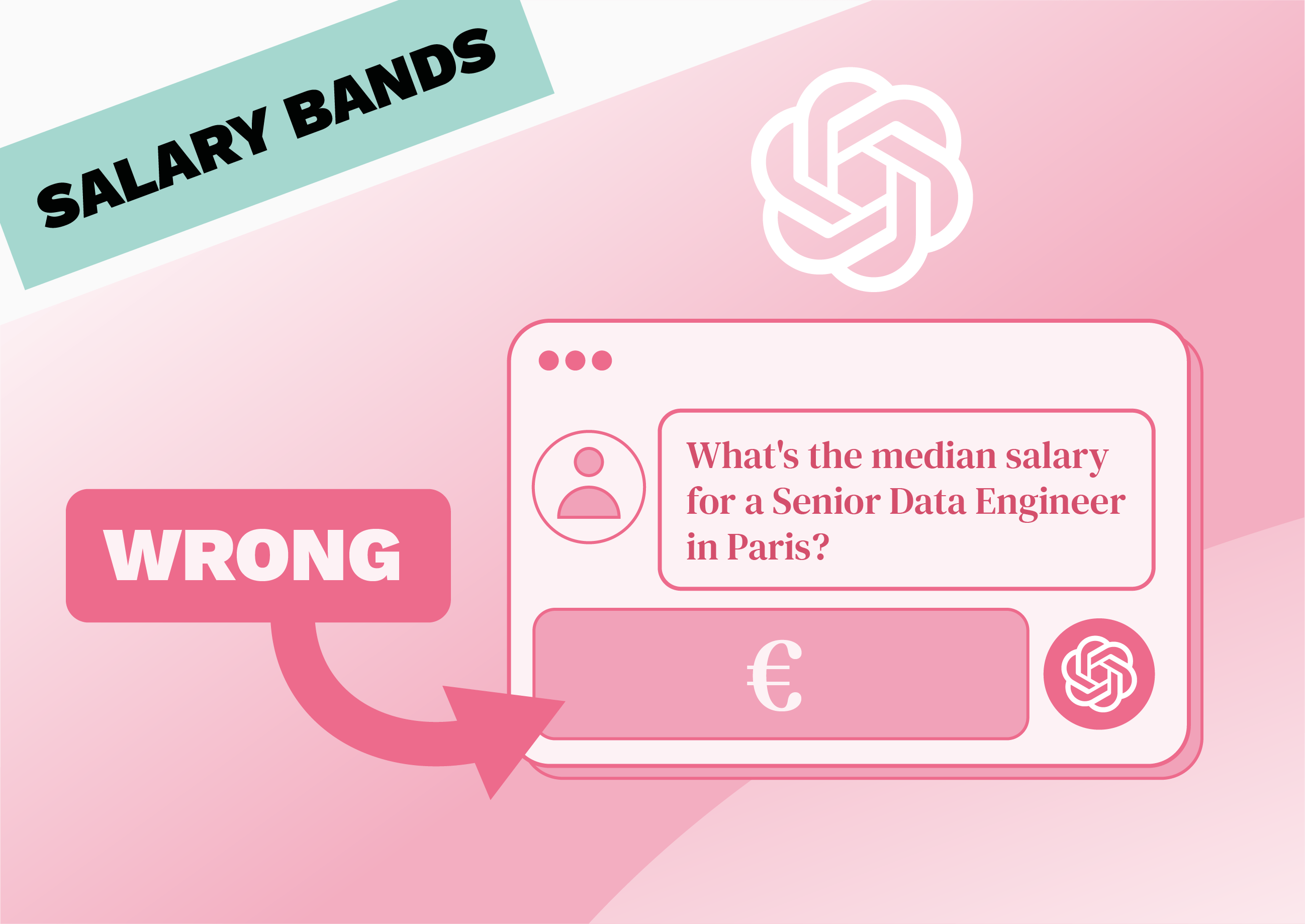Don't Kick the Can Down the Road: HR Insights with Andy Mulder
Over the past few months, we’ve had the opportunity to sit down with leading HR practitioners and pick their brains about the latest trends in the world of HR and compensation.
Most recently, we caught up with Andy Mulder, whose career highlights include helping his former employer, MVF, to achieve the top spot on the Sunday Times’ Best Companies to Work For list. Impressive stuff!
Andy has recently made the move to Nudge, an employee financial wellbeing and financial education platform for employees. We’ll talk a bit more about Andy’s passion for this work later on.
During our conversation with Andy, we also got to talking about:
- His pathway into HR
- The urgent need for pay transparency in 2024
- HR’s role in leading the conversation around DEI
- The need to go further with gender pay gap reporting
- The importance of networking for HR leaders
A strategic entry into HR
Throughout our series of interviews with HR leaders, we’ve seen a theme emerging: most of them don’t start out intending to go into HR. But Andy is a bit of an exception. His first experience with HR was seeing his dad laid off from a company he’s worked for for over 30 years.
“He was looked after financially, but from my recollection as a young person, the whole way that it was done just wasn’t a very nice experience for him to go through,” Andy told us. “Because as that generation did, he had really given his full professional commitment to that business.”
Andy remembered this experience when applying for courses at university, and ended up studying business and HR. After a few years working in executive search after graduating, he transitioned to an HR role around 2006.
Advice for HR leaders: Don’t kick the can down the road when it comes to pay transparency
As we’ve discussed here at Figures, pay transparency is a big focus for many HR teams at the moment. So it’s no surprise that it came up in our conversation with Andy. And, like many organisations, Andy’s former employer, MVF, has started on the road towards total transparency, but isn’t quite there yet.
“I think a big part of that was that, particularly in the lost years to COVID, we had lots of other priorities that were on the People team’s road map,” Andy told us. “And actually getting to the place where we were ready to properly do justice to the type of communications exercise that you would need to put into that… it was never the right moment.”
Andy’s advice to other organisations grappling with this issue? Don’t kick the can down the road. Because, he says, not being transparent can lead to problems with employee relations.
“People will go off and find their own data sources,” he said. “And I think that once you’re on the back foot trying to explain why the data that people are looking at is maybe not the right data in your opinion, you’ve already lost the argument because you’re sounding like you’re defensive and driving an agenda.”
Budgets tight? Focus on total rewards to increase value to employees
During our conversation with Andy, we also got to talking about an evergreen issue faced by HR and compensation leaders, especially in the startup world: budgets. After all, start-ups are often simply not able to compete on salary with much bigger players.
“I think what we tend to see is that the bonus element of compensation in smaller scale-up organisations is far more important,” Andy said. “And that’s part of your employer brand, right?”
According to Andy, part of it is about understanding that salary isn’t necessarily the most important element of compensation for all employees — particularly those that start-ups and scale-ups are most keen to attract.
“It’s about knowing your audience and knowing what the people that work for you value. And that isn’t necessarily always going to be big salaries.”
DEI in 2024: HR needs to start the conversation (and then step back)
Diversity, equity and inclusion is on all of our minds in 2024. And we always like to ask our experts what they see as HR’s role in pushing these initiatives forward within their organisations.
According to Andy, HR’s role is to start the DEI conversation at the board level, and make sure you’ve got executive interest and buy-in for DEI as a strategic priority.
“But once you’ve started the conversation, you really need to empower people throughout the organisation to continue it and then try to step back and let that conversation fuel itself,” Andy said.
Part of that is a big exercise in educating employees across the organisation, and breaking down the taboo that often prevents people from discussing DEI issues.
“We had to go on a bit of a journey educating people internally and getting them comfortable having conversations about this type of thing,” Andy said. “To let people know that actually, it is OK to ask particular questions. That was probably a journey of about a year and a half.”
Top priorities for tomorrow’s HR leaders
Of course, we couldn’t resist the opportunity to pick Andy’s brains about what he sees as the most important priorities for HR professionals, now and over the next few years.
Here are a few of the things we talked about:
Supporting employees’ financial wellbeing
As we mentioned, Andy has recently started a new role as People Director at Nudge, a financial education and financial wellbeing platform. And part of his motivation for this move was his belief in the work that Nudge is doing.
“I think a real realisation for me of late has been that taking ownership of financial education needs to be higher up in organisational priorities”, he told us.
Of course, in the years since the pandemic, we’ve seen employers all over the world focus more and more on their employees’ emotional, physical and mental wellbeing — but financial wellbeing is often missing from the conversation.
In the future, then, Andy believes HR leaders should put more of an emphasis on helping employees to better manage their finances — and tools like Nudge are a big part of this.
“Even as someone who has a hobbyist interest in the financial world, it can seem really, really baffling,” he explained. “So a product that helps to provide that financial education to people is something that I’m a big believer in.”
Going beyond the gender pay gap
In the UK and many other countries, employers are required to report regularly on the pay gap within their organisation. But according to Andy, simply doing what the law requires and going no further is no longer enough in 2024.
“The gender pay gap needs to be a conversation that takes place,” he said, “but we put a lot more narrative around understanding our pay gap than we were required to by law because we felt it was important that we understand what that very black and white number actually means.”
“We’ve been looking to try and expand that into looking at our ethnicity pay gap, with an aspiration to get stuck into some of the other intersections in the future,” Andy also told us.
Of course, the biggest problem with exploring other pay gaps as an employer is that you don’t always have the necessary data. And according to Andy, the key is to make sure you’re treating the data you already have with the respect it deserves.
“If people can see that really, you’re only paying lip service to your gender pay gap, you’re doing the very bare minimum that’s required by law… then it’s probably very unlikely that they’re going to feel inclined to find lots more personal and often quite private and sensitive information,” he told us.
Embracing the power of the network
According to Andy, one of the most important things that HR leaders can do to stay up to date on the latest trends and priorities is to lean on their professional networks.
“I’m a bit of a fiend on LinkedIn, and I spend quite a lot of time making sure that I’m quite carefully curating the content that I’m seeing there. I want to make sure that it’s as relevant to me as it possibly can be,” he told us.
Another resource Andy was keen to highlight was the Open Org, an organisation whose mission is to bring transparency to the world of work and redefine the employer-employee relationship through its guided coaching and bootcamps.
“For me, that’s a really valuable source of information because so much of people’s time is spent reinventing the wheel,” Andy said. “And actually, we’re all trying to do the same things. We want to create world-class workplaces, we want to make people’s experience of coming to work a brilliant one, and we want to support the commercial success of our businesses. It doesn’t make sense for everyone to do that in their own little bubble.”
As a proud Open Org accredited organisation, we can only agree!
More HR insights
Want more insights from industry-leading HR and compensation experts? Check out the other articles in our series:
- Reading HR Textbooks on the Beach with Hatty Choudhury
- Supporting Employees in a Changing World With Nebel Crowhurst
- Adapting Comp and Ben for Today's Workplace With Halina Ellis
- The Future of HR and Compensation With Aaisha Knights-Ihediwa
- Putting the 'People' Back in People Management with Jason Waterman






